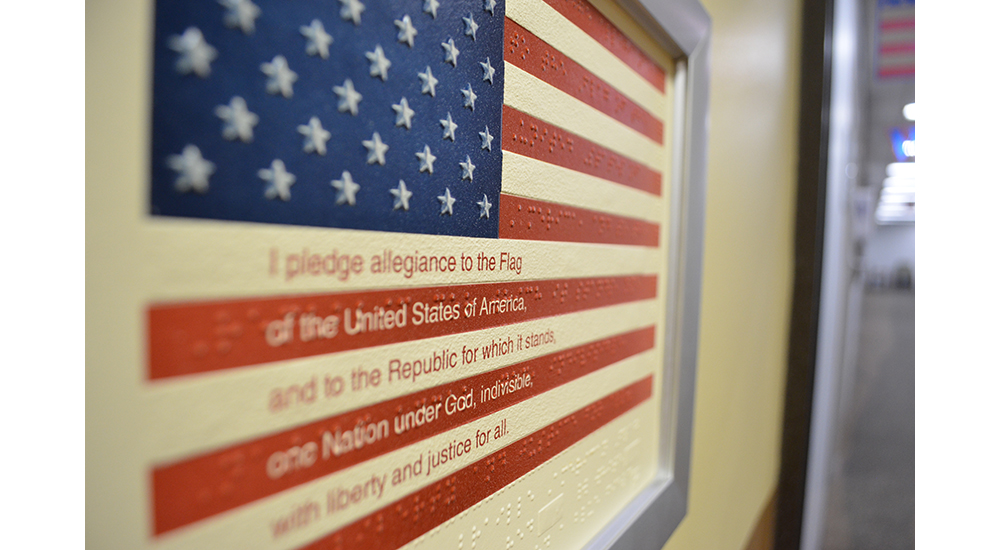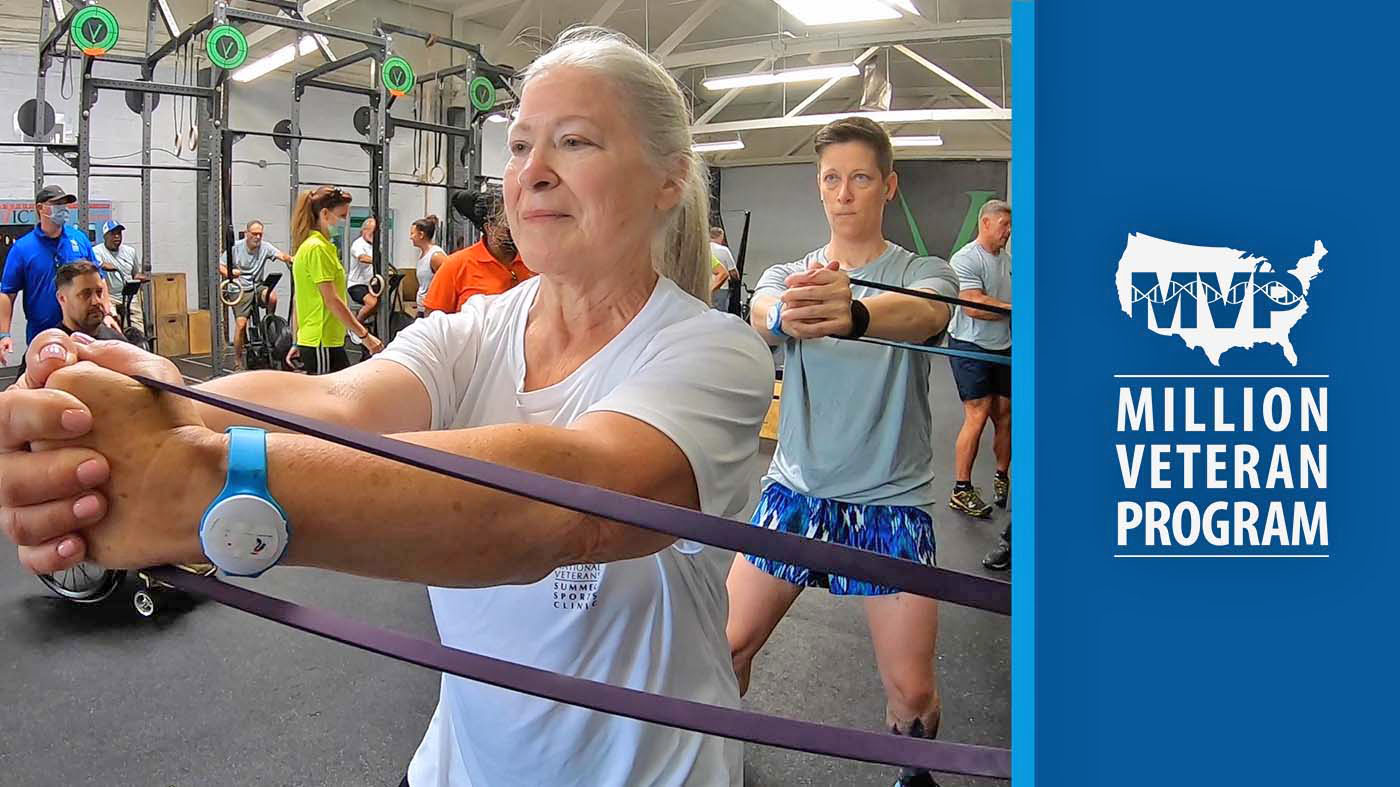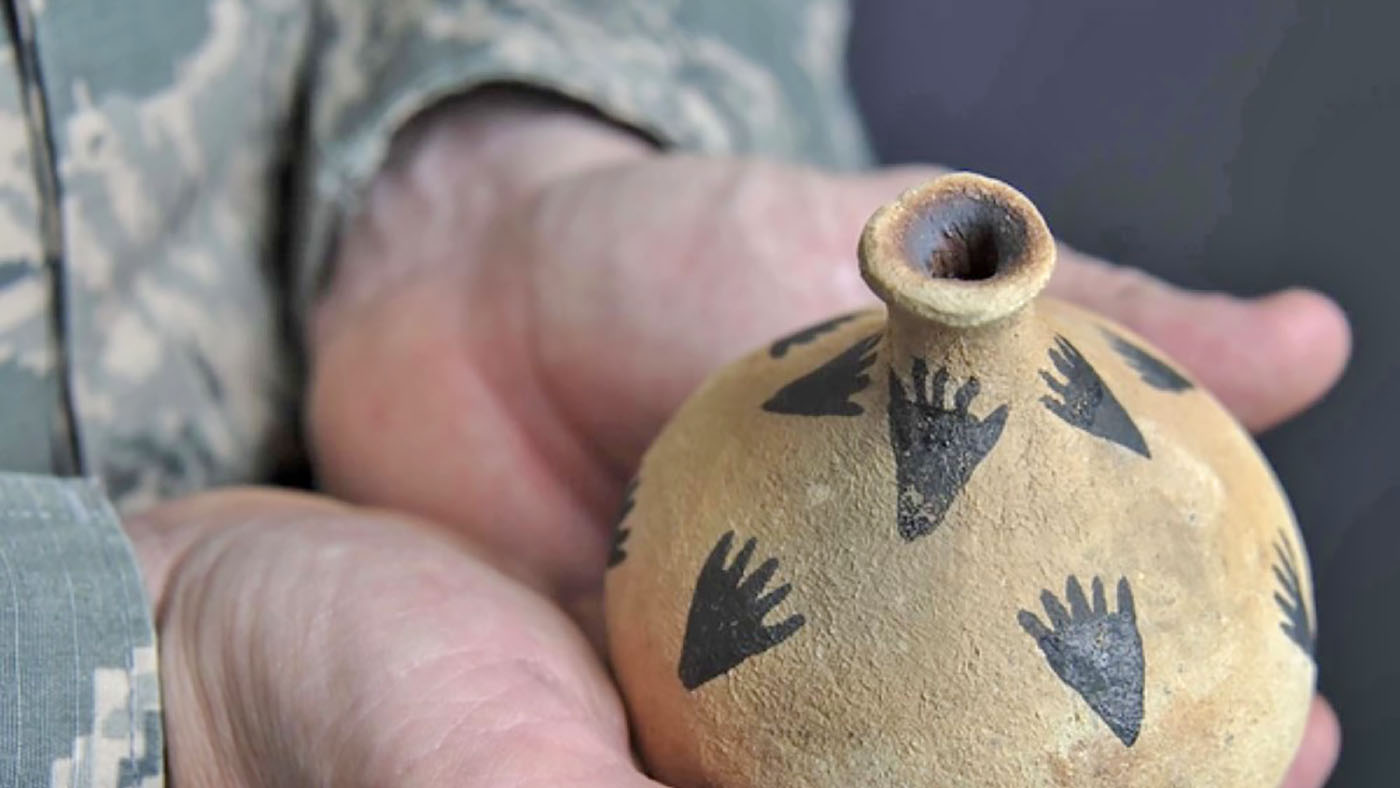A braille version of the American flag has been placed on the wall outside McGuire VA Medical Center’s leadership suite, next to the public affairs office. The flag, which reads the Pledge of Allegiance, was provided by Kansas Braille Transcription Institute (KBTI), a non-profit organization that serves blind and low vision individuals.
Randolph Cabral of Wichita, Kansas, founded KBTI in 2000. He began learning braille in 1995 after his late father, a Veteran of the Army Air Corps, became blind due to glaucoma.
According to KBTI, America has more than 30 million blind and low vision citizens. Most recent VA numbers estimate more than a million Veterans have low vision, and numbers are expected to increase in the coming years.
“They feel like their world’s back open again.”
McGuire’s Visual Impairment Services in Outpatient Rehabilitation (VISOR) has served about 2,000 blind and low vision Veterans in its 10 years at the facility. The program focuses on goal-oriented outpatient rehabilitation that helps individuals work towards autonomy in accomplishing tasks like reading, cooking and staying in touch with loved ones.
Many legally blind Veterans are over 85
Rosemary Duda, chief of the program, said VISOR helps improve quality of life for Veterans who are blind and low vision. Low vision Veterans – those with vision difficulties that cannot be corrected by traditional means – make up the majority of individuals in the program. About half of the Veterans are legally blind, which means neither eye sees better than 20/200. Many are 85 years or older.
Duda said she hopes VISOR will continue to increase its service numbers. A primary goal is simply getting the word out there that this help is available to Veterans with diagnosed vision impairments.
“Blind and vision rehabilitation therapy is not as well known as occupational, speech or physical therapy,” she said.
McGuire has an optometrist on staff who specializes in low vision, and all new VISOR referrals start with a vision evaluation to assess their needs. Veterans then work with the VISOR team – and often other programs in the facility, such as audiology and polytrauma – to create achievable goals and plans of action.
“We continue to serve them as their needs change,” Duda said. “A lot of this is teamwork.”
Numerous technology options
VISOR has numerous options for Veterans in the program, depending on their needs. The primary categories are: specialty low vision prescription devices, orientation and mobility, computer access and technology, and assistance with daily living tasks.
Some Veterans use tools like electronic magnifiers or screen readers to enlarge or audibly read type from books or newspapers. Veterans who hear well often rely on auditory methods to complete tasks.
ScripTalk, an assistive technology program that reads prescription information aloud, is useful for individuals who manage their medications at home. Others with hearing difficulties use tools like Pocket Talkers that work like headphones to amplify sounds from television or their surroundings into their ears.
When blind or low vision Veterans can use technology or rely on other senses to increase their quality of life, the difference is significant, Duda said.
“They feel like their world’s back open again,” she said.
According to Duda, there are not as many people learning braille as there once were – the difficulty is like learning a new language, and many find technology aids easier and more helpful. But the significance of the braille flag and the support it conveys for blind and low vision Veterans and Americans will not fade.

Topics in this story
More Stories
MVP’s research informs personalized care for Veterans, supporting whole health and beyond.
More than 4,000 American Indian/Alaska Native Veterans have been approved for the copayment exemption and we're here to help you apply for yours, too.
The screening is an important conversation with your VA health care provider. Here’s the reality behind common misconceptions.







I see. I can understand about it .
In the future, sometimes, well,